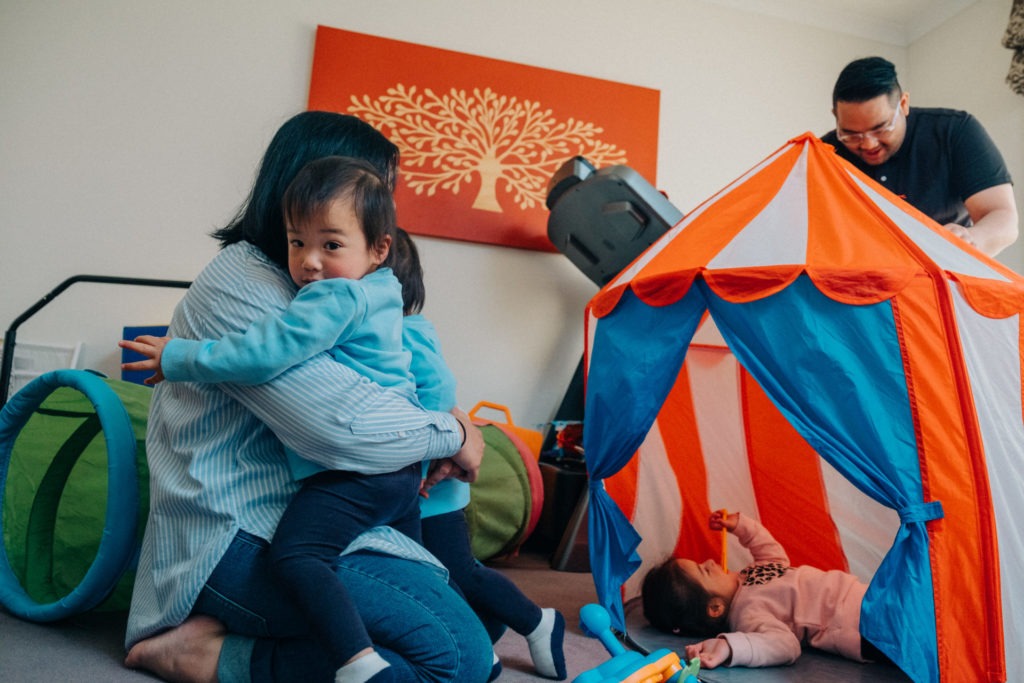Australian jobs are on the prime minister’s agenda on his second full day in election campaign mode. Both Scott Morrison and the Treasurer Josh Frydenberg are doing the rounds on Tuesday discussing their pledge to create additional employment opportunities in the next five years.
“We are creating more jobs because there is real dignity in work and everyone who can be in a job who wants a job can therefore provide for themselves and their family,” Josh Frydenberg told Channel 7 news.
If the priority for any candidate or party is creating jobs and supporting Australians to provide for their families, there is one policy that beats the rest. It’s making high quality early childhood education and care radically more affordable.
The fact Australian parents have to pay some of the highest fees in the world for childcare means that even with a job it can be difficult to provide for a family. The exorbitant cost is a genuine barrier to many parents – especially mums – working at all or taking additional shifts or days.
Changing this is an absolute boon whether you’re motivated by creating jobs, boosting productivity, setting children up for success or levelling the playing field for women.
Just yesterday The Australia Institute and the Centre for Future Work released a new report, The Economic Benefits of High-Quality Universal Early Child Education.
It showed that making quality early learning and care free would boost the economy to the tune of at least an additional $48billion per year, generate 255,000 full time jobs in the sector and free up the equivalent of 850,000 full time workers. The fact the policy will reduce inequity, set children up for lifelong success and pay for itself is the icing on a pretty spectacular policy gateau.
Australia is in the peculiar position of having an incredibly well-educated and skilled female population that is, in effect, locked out of work after having children.
That we rank #1 in the world for female educational attainment, but #70th for female workforce participation is stupefying. What is the point of investing resources in educating, training and skilling slightly more than half the population if we’re unwilling to invest in the infrastructure necessary for women to maintain a connection to paid work?
As the Treasurer rightly points out there is dignity in paid work. On what reasonable grounds can Australia continue to systemically deny that dignity to women and fail to address the “reverse-wealth trajectory” that results in more than a third of single women living in poverty by the age of 60?
The cost of women being locked out of paid work is staggering. Making early learning and care radically more affordable is a powerful structural solution. It is too late to reverse the trajectory for too many women in Australia, which is why solutions for housing, safety and poverty must be implemented.
But free quality early learning and care would disrupt a key driver behind women’s economic insecurity in Australia and change the story for the next generation of women and children.
No serious conversation about creating jobs in Australia can overlook early learning and care.


